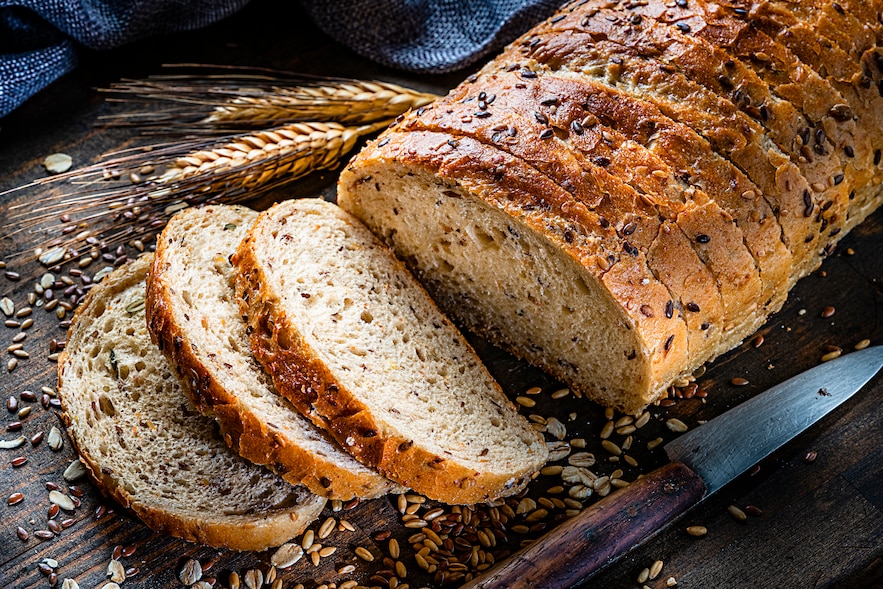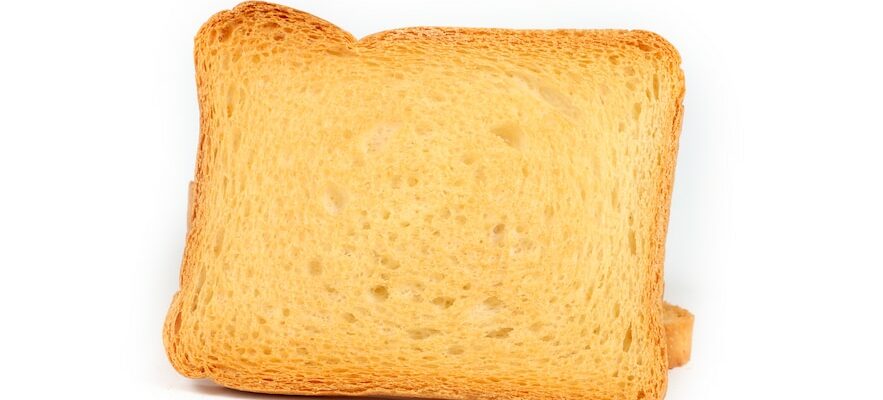A lot of misconceptions circulate around our chopsticks: the bread would make you fat, the crumb would be indigestible, the allied biscotte of diets, etc. Should we really be wary of bread or, on the contrary, is it essential to eat it every day? L’Express answers all your questions.
The bread makes you fat
True and false. You have to keep in mind that bread is a source of sugar, essential to our daily energy. A baguette of bread contains the equivalent of 25 squares of sugar. We must absorb 50% carbohydrates per day (for a person needing 2000 daily calories), so bread is a contribution of sugars that can be interesting, especially in the morning, when you are on an empty stomach. However, it is not recommended in the evening, when our energy expenses drop. The classic wand can make you fat because it is made of white flours which have a high glycemic index, which means that sugars are quickly passing through the blood. The body will have to store this overload of sugars in the form of fat.
Conversely, the more complex the sugars contained in bread, the better it is for health. To do this, you must choose flours containing fibers which slow down the absorption of sugars and prevent weight gain, such as wholemeal bread.
What we put on it (jam, butter, honey or cheese) of course has an impact. This changes calorie contributions. As part of a slimming diet, you will choose goat cheese at breakfast, to bring proteins and calcium (more than butter) and obtain a full effect.
Bread promotes water retention
Fake. It all depends on the quantity! The bread contains salt. The salt content of the bread can promote water retention if its consumption is excessive. However, in reasonable quantities (around 75 grams per day), this effect is negligible.
Biscottes help lose weight
Fake. Contrary to what one might think, the rusks are often more caloric than bread, because they are devoid of water and more concentrated in sugars. It is therefore necessary to consume more than bread to be satisfied. Then, overflowing a food like bread increases its glycemic index because the heat destructs the sugar molecules. The sugar contained in the rusk goes very quickly in the blood, and the body will manage this overflow by storing it. For a balanced breakfast, prefer a slice of wholemeal bread with a little fresh cheese.
No, the rusks do not lose weight: more caloric than bread, they increase blood sugar and promote sugars storage.
© / Getty Images
Bread is better than breakfast cereals
TRUE. Industrial cereals, even called “dietetic”, are often very rich in added sugars. If you really want to eat something balanced in the morning, it is better not to turn to breakfast cereals and even less those intended for children, too sweet. A slice of wholemeal bread accompanied by a source of protein and good fat is a healthier and full option.
You have to eat bread every day
Fake. We can do without bread on a daily basis, but we need a source of sugar for the day, because the brain feeds at 100% sugars. It can be replaced by other starchy foods such as legumes or potatoes. Varying your carbohydrate sources is essential for a balanced diet.
Do not eat more than two slices of bread per day
Fake. You can eat up to 100 grams per day, 4 slices of 25 grams. It all depends on the composition of your meals: if you eat proteins and vegetables to other meals of the day, your intake will be balanced.
All breads are equal
Fake. Breads made from complete or semi-complete flour (T80 or more) are richer in fiber, minerals and vitamins than the traditional baguette. If possible, choose organic bread to avoid pesticides often present in non -biological flours.
Bread is good for transit
True, but It all depends on the type of bread. It is mainly the fibers that will regulate your transit. However, we find much more in the full breads than in the wand. Beware of rye bread whose fibers can be irritating for the colon: they are not very digestible and can create bloating.
Some breads contain beet fiber, even richer in fiber than complete and very favorable flour for serene transit.
Bread is a good intake of slow sugars
False for the baguette, true for wholemeal bread. It is mainly thanks to the fibers contained in flour that bread can be classified or not in the category “Slow sugars”: The more complete the flour, the better the intake of slow sugars. If you eat the wand, it is a supply of fast sugars, like a common piece of sugar.
Better to eat cereal bread
TRUE. There are more fibers in a cereal bread than in the baguette, even if the fibers are not of the same quality as in a wholemeal bread. Cereal bread also contains more than magnesium that in classic bread, even if it is in modest proportions.

Cereal bread, a nutritional ally to favor?
© / Getty Images
Sourdough bread is better
TRUE. The crust, more cooked, is generally more digestible than crumb. On the other hand, very white breads can cause bloating in some sensitive people.
The crust is indigestible
Fake. The more the dough is cooked, the more it is digestible, because cooking helps at work on the stomach. On the contrary, white bread or crumb can cause bloating because they are less cooked.
Organic bread is expensive but it’s better
TRUE. Bread artisanal organic Done by a neighborhood baker with organic flours is necessarily made without preservatives, which explains that the bread hardened quickly, in about 2 days. Conversely, bread Industrial organic Contains conservatives to preserve it over the long term. They are also wrapped in modified atmosphere packaging to prevent the development of bacteria, which changes the taste and quality of bread.
Gluten -free bread is better for health
Fake. Gluten -free bread often contains additives and flours rich in fast sugars. Corn flour is much richer in sugars than that of wheat. If you are intolerant or allergic to gluten, it is better to turn to homemade with full rice flour for example, it will be better from a dietetic point of view, but not terrible in terms of texture, which will be a Little dry and friable.
